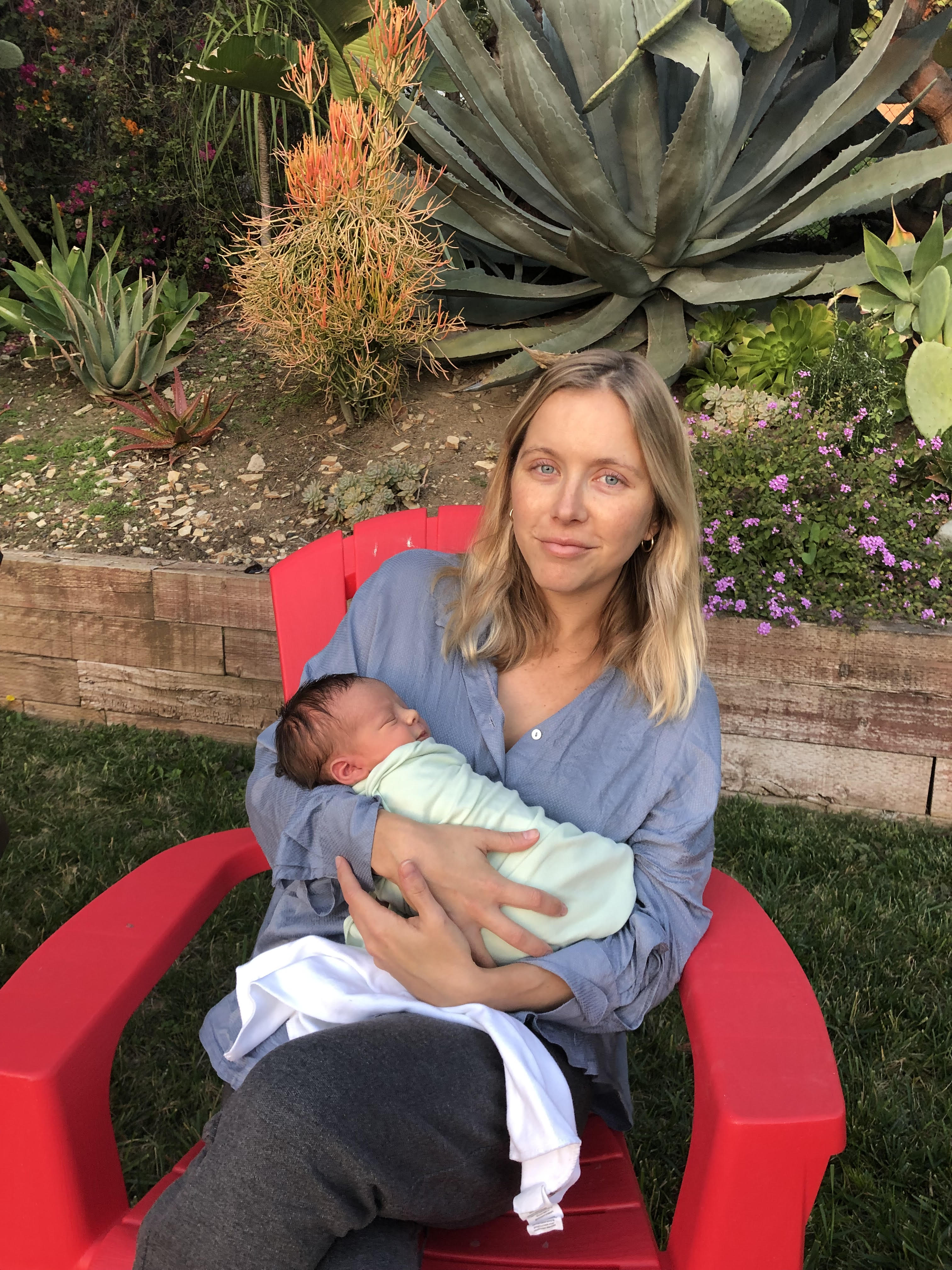We asked Stephanie Danler—contributor to the Sewanee Review and author of Sweetbitter—three questions to help connect the dots between her 2017 essay, "Engrams, California" and her latest piece of nonfiction, "Stoned Fruits." Danler, a new mother of a healthy baby boy, spoke about the gains, losses, and expansions that accompany parenthood.
—Adam Ross

SR: Your first essay for us, “Engrams, California,” was about the aftershocks of personal trauma and damage, and how they threatened intimacy. Your second essay, “Stoned Fruits,” was about the liminal state of pregnancy, how it "mark[s] a passage from one status in society to another." Do you see these two essays as being connected?
Danler: I do think both essays are asking the same questions: How do we live with the damage we’ve inherited? How do we rewrite our own stories? For me, there’s a self-destructive drive that feels like a birthright, one that I’ve indulged freely in for most of my life. There came a point—around the time of “Engrams”—when I saw an opportunity to change, or to shift. In the case of that essay, it was taking a step towards intimacy after feeling shut down, but I genuinely didn’t know if I had the capacity to do it. The same is true of “Stoned Fruits." I asked myself every day of my pregnancy: Do I have the capacity to do this? This meaning being a parent that was better than my own.
I’m wary of epiphany and catharsis in personal non-fiction—it feels like a fictional convention forced onto the tangle of random events that is “real life.” However, I do believe in hope. Both essays trawl through the dark, underwater thoughts and come up for air at the end. I think that’s a reflection of how some of us live.
SR: What’s the third essay in this spiritual autobiography going to be?
Danler: Considering these pieces are drawn from life, I think only the fates could answer that question. Motherhood is a dense and fertile bed for writing—there’s dramatic tension in balancing all the selves: the mother, the partner, the artist. There’s also a pull to write about my own parents. I was raised by two very charismatic addicts. Their charisma and addictions cover an emotional black hole they both carry inside them. Their stories are sad, and they haunt my work. I have an aversion to dealing with them directly that I’m working through. It seems too easy to blame one’s parents, catalogue their mistakes. As I’ve aged, my anger towards them has turned to pity and recently became tinged with compassion. That’s one thing about becoming a parent, even for four weeks (my son—who is currently sleeping on me—is exactly that today), it revises all your stories about your own parents.
SR: In “Stoned Fruits,” you describe your third trimester state of mind as follows: “[I am] only qualified to talk about the pre-liminal rites: the separation, the isolation, or, as it feels to me in the present tense, the losses.” Now that your son is in the world, what are the gains?
Danler: Without glossing over the insanity and intensity of having a newborn (and I mean absolutely fucking insane and so much harder than I could have anticipated), the immediate gain is expansion. You feel stretched to your absolute edges, blown apart, struck open. Most days I feel like an exposed nerve, I’m so full of love and fear. Is that a gain? I know it’s a privilege that I wouldn’t trade for anything, no matter how much I miss sleep or how great everyone’s vacation looks on Instagram. When I’m feeding him at 3 a.m. and staring at his ear and it’s the most perfect thing I’ve ever seen, I feel like my life is just starting—this is after 35 years and thinking I had a few things figured out. I love that I know absolutely nothing.
